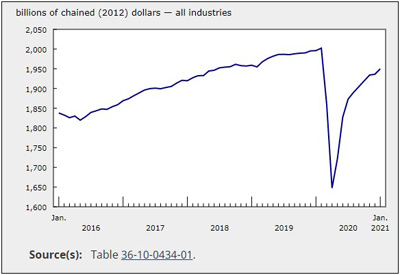The Big Picture

Rick McCarten
Ford just recently announced that they are setting up a research facility in San Jose, CA to look at new forms of transportation and all of the software connected to new vehicles. They also announced that they see themselves not only in the car business, but in the grand scheme of things, they are in the “transportation” business.
Right now, cars might be the best form of transportation. However, by taking a bigger picture view, the way we travel now, may not be the best method. Ford is not going to be tied to old legacy viewpoints that force them to defend themselves against new technology — which could end up hurting their business.
I remember reading an article by Theodore Levitt in a 1960s issue of the Harvard Business Review which set up the basic premise that the railroad business at the time was seeing major decline. His point was similar to Ford’s; if the railroads saw themselves in the transportation business and not just in the railroad business, they would have reacted differently. Perhaps they would have embraced highways and other forms of delivering goods, rather than seeing these other modes of transportation as competitors that need to be fought off. If only they had seen their job as helping customers get products from factory to consumer, they would have seen opportunity when new methods of transportation arose. Unfortunately, they only saw competition. The results? This mentality hampered their opportunity to grow and to capitalize on change.
Another similar case is the city of Detroit. At one point in time, it was recognized as the world capital of the auto industry. Instead of embracing foreign car manufacturers — Honda, Toyota and Hyundai — it supported the three American automotive companies and forced others to locate away from the centre. The result? Instead of hurting auto manufacturers, it ended up hurting itself.
So what is the big picture for electrical distributors?
The unique thing about wholesalers, is their ability to turn items. Six to eight turns a year make it possible for a company to be in the wholesale business. Without these average turns, your mark-up would need to be higher and it would be difficult to maintain “wholesale pricing.”
Here is a chart to show how it works:
• 2 turns X 60% margin = 120%
• 3 turns X 40% margin = 120%
• 6 turns X 20 % margin = 120%
• 12 turns X 10 % margin = 120
As the figures above illustrate, three turns a year with a 40% mark-up provides 120% return on your investment at the end of the year. (You need 20% to pay staff, buildings, loans, etc.). Similarly, six turns a year with a 20% mark-up, provides a 120% return. This puts you in the wholesale ballpark. Other companies like Walmart try to maintain similar average turns.
The specialty retail market would have larger margins, possibly 60% or more, because the store just can’t turn over inventory fast enough.
On the other hand, if you double the number of turns to 12 — or Amazon’s goal of 24 — and you get mark-ups of 5% to 10%, this scenario could diminish returns and change the dynamics of actually buying and selling products. Amazon’s method for example is to get payment prior to purchasing the item, so credit becomes a source of revenue — not an expense — further reducing overhead costs.
What makes electrical distributors unique is that the product and customer mix allows the market to have turns. The product and customer mix empowers electrical distributors to remain a combined force — one of the biggest wholesale groups in North America. It is this mix that allows yearly turns to take place, that allows the margins. Any change in “the mix” will change the dynamics of the wholesale business overnight.
I recall sitting next to a small regional pharmaceutical distributor from Arkansas who told me that his industry had consolidated in the U.S. in less than 10 years. I asked him what caused the change and he said the customer base changed.
And so, understanding what makes your business and services unique will allow you to look at opportunities for expansion. This understanding may allow you to move into existing product markets where you can improve service and pricing through high turnover rates. It might also allow you to build new customer connections that can take advantage of larger volumes.
The next time you see a competitive situation, think about the big picture, like Ford, and you just might see it as an opportunity and not as a threat.
Rick McCarten is VP, Operations, Electro-Federation Canada.
Read more in Canadian Electrical Wholesaler by Rick McCarten
Should Distributors Sell Robots?
Agility: Knowing Your Competition
The Big Picture
Could our Industry Lose the Lighting Market?
Adapting to the Future with Young Talent
If Your Customers Can See More, You Might Want to Help Them See Even Further
Health and Sciences Could take a Lesson from the Electrical Industry
Change is About to Hit Our Industry
Challenges of the Digital Age
Agility: The Customer Landscape
Agility is the New Lean: Alexander Defeats the Persians
Agility is the New Lean
The Gap Between “Us” and “Them”
Our Industry Needs to Help Canada Skate to Where the Puck is











